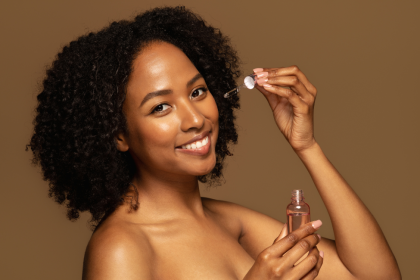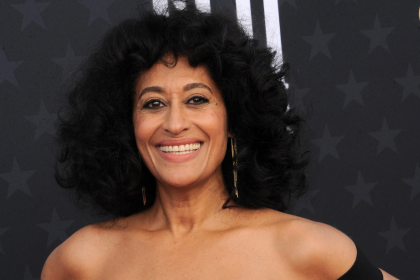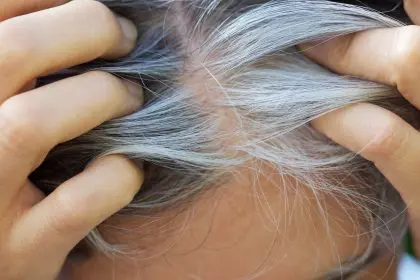The billion-dollar beauty giant’s ambitious campaign to transform textured hair education is reshaping an entire industry—and changing lives in the process
The professional haircare industry has a problem that’s been hiding in plain sight for decades. Despite textured hair representing approximately 65% of the global population, countless stylists graduate from cosmetology school without the skills to properly serve these clients. But L’Oréal Professional Products Division isn’t just acknowledging this gap—they’re obliterating it.
On Thursday, May 29, L’Oréal’s THE TEXTURE OF CHANGE™ hosted “The Power of Texture: Culture, Community & the Future” at L’Oréal’s ProLAB Academy of Beauty in El Segundo, California. The landmark event brought together industry heavyweights, cultural icons, and business leaders for what felt less like a corporate gathering and more like a revolution in motion.
“This is more than a conversation—it’s a movement,” declared Erica Roberson, Vice-President of DE&I Business Development for L’Oréal Professional Products Division and Founder of THE TEXTURE OF CHANGE™. “Our goal is to reimagine the future of professional haircare by uplifting textured hair and centering education.”
The cultural awakening
The event’s first panel, “Rooted in Community: How Hair Shapes Identity, Culture & Connection,” featured powerhouse voices including Blake Newby, Jackie Aina, Jawara Wauchope, Akili King, and Julissa Bermudez. The conversation cut straight to the heart of why this movement matters beyond profit margins.
“I think it starts with self-love, self-acceptance, and understanding you’re beautiful the way you are or you’re beautiful the way you want to be,” said Jawara Wauchope, who recently presented “Black Hair Reimagined: The New Era of Beauty”—an event proudly sponsored by THE TEXTURE OF CHANGE™. “Stepping away from associating words like luxury with straight hair. Tightly curled hair can be as well.”
This cultural shift is driving real business transformation. The second panel, “Beauty and Beyond: The Art and Business of Textured Hair,” featuring Andrea Lewis, Ursula Stephen, Tippi Shorter, Crystal Wright, and Piersten Gaines, revealed the economic imperative behind inclusive education.
“The additional benefit [to textured hair education] is that you have more services to offer,” explained Tippi Shorter. “It results in more business because now you’re introducing more of that 65% of the population to your client base.”
Corporate leadership meets legislative action
But L’Oréal Professional isn’t stopping at corporate training programs. They’re pushing for something more fundamental: changing how future stylists are educated from day one through state-mandated curriculum reform.
Working with the Professional Beauty Association, L’Oréal formed the Texture Education Collective (TEC), an initiative advocating for textured hair education to become required in cosmetology school curriculum and state board exams nationwide. The Texture Education Collective wants all cosmetology state boards to include training on: working with hair with various curl, coils and wave patterns, different hair strand thicknesses and different volumes of hair.
The results have been remarkable—legislation has already passed in Minnesota, New York, Connecticut, and California. Myra Reddy, Director of Government Affairs for the Professional Beauty Association, shared insights on the national impact of these legislative victories during the event. This systematic approach represents what happens when a major corporation takes responsibility for fixing industry-wide problems rather than just profiting from them.
The ripple effect accelerates
The initiative’s momentum is building through multiple channels. Interactive “Jam Sessions” partnered with Ulta Beauty and SalonCentric showcased top stylists like Vernon François, Michelle O’Connor, Jawara Wauchope, and John Mosley creating signature looks in real-time, demonstrating the artistry that proper textured hair education unlocks.
“The future of beauty is inclusive—and that belongs to the stylists who choose to learn, grow, and embrace every texture,” said Kareema Wilson, Vice President of SalonCentric Diversity, Equity and Inclusion.
With nine professional brands (Redken, Matrix, L’Oréal Professionnel, Mizani, Biolage, Kérastase, Pureology, Pulp Riot and Shu Uemura) and SalonCentric’s distribution network behind it, THE TEXTURE OF CHANGE™ has the scale to drive industry-wide transformation.
The movement is gaining grassroots traction through social media (@thetextureofchange on Instagram & TikTok) and advocacy efforts, with professionals nationwide backing curriculum reform through their petition.
The future is now
For an industry built on helping people look and feel their best, the path forward is crystal clear. The question isn’t whether textured hair education should be universal—it’s how quickly states will act to make it mandatory. As L’Oréal Professional’s initiative demonstrates, real change requires both corporate leadership and regulatory action.
The petition at probeauty.org/TEC represents the next critical step in transforming an industry that’s ready for revolution. Because when 65% of the population can finally access skilled professionals who understand their hair, everyone wins.






















